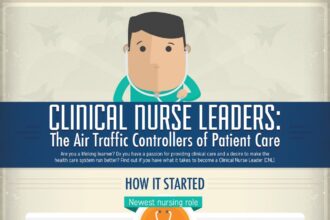Is concierge medicine (also known as direct primary care, retainer-based, membership) for everyone or is it just for the rich, the 1%? Most people assume it is for the elite and cannot be afforded by the common man, the masses. That is unfortunate because in many cases it can be quite affordable. Here are three examples.
AtlasMD in Kansas City and others like it think of themselves as “blue collar” concierge practices. According to AtlasMD physician Dr Doug Nunamaker “We realized that insurance paying for primary care is akin to using car insurance to try to pay for gasoline. ‘It’s something that’s otherwise fairly affordable until you try to pay for it with insurance: My premiums would be much higher because they wouldn’t know how much gas I would need, they would tell me where to get gas, and I’d have to preauthorize trips out of town.” AtlasMD physicians have 600 patients each. Monthly fees: 20 to 44 years – $50 a month, 45 to 64 – $75 a month, 65 and older – $100 a month, children to 19 years – $10 a month. Generic medicines are available at wholesale prices.
In Erie, a working class city in northwestern Pennsylvania, the Izbicki brothers also began such a “blue collar” membership practice. Just out of training in Family Medicine in 2005, they first worked for another practicing physician and then the local hospital, in each case being frustrated that they could not spend enough time with each patient. They started their own practice using the typical insurance-based business model and soon had about 4000 patients between them. They were back to seeing too many patients for too short a time each. Dr. Jon Izbicki told me, “We were bitter, frustrated. We were in a failed profession. It was so bad that we really had to take a risk. We knew that what patients want more than anything else is uninterrupted time with their PCP and with that to build a level of confidence. They want relationship-centered care.”
They converted in June, 2013. They chose to call their practice direct primary care given the fiscal conservatism of Erie. Not all of their patients were pleased; less than 20% joined initially. But over time their practice numbers have climbed.
The Izbicki brothers charge $780 per year for unlimited primary care, payable as $65 monthly or annually with a discount. Visits are as long as needed and usually the same or the next day. They have developed contracts with clinical laboratories for highly discounted testing and radiology. They purchase generic drugs at wholesale prices and sell them to their patients at the same price. For many patients, especially those with multiple chronic illnesses who are taking 5-7 prescription medications, this can save as much or more than the annual membership fee. It is this latter factor that especially encourages Medicare enrollees to join.
Dr Jon Izbicki put it this way, “Perhaps the term ‘complex care physician’ would be better than primary care physician as it more closely relates the work of the doctor, especially with these patients with highly complex, serious illnesses.”
Not everyone has a sizable practice from which to convert. For younger physicians, with no base of patients to draw from, it can be a challenge to get started. In Lawrence, Kansas, Dr Ryan Neuhofel began a membership practice called NeuCare right out of his residency training in 2012. He had decided while in medical school and residency that he did not want to be in a typical insurance-based practice. He told me, “I saw that most PCPs did not have fulfilling careers; they spent enormous time in administrative tasks rather than actually working with their patients. I knew I wanted to do primary care but it had to be in a model that let me earn a decent living yet let me give real quality care in a compassionate manner.
“It was a real gamble to go straight into this. I had no patients and no reputation in Lawrence. My practice built slowly at first but is gaining momentum now.” The demographics of his locale are individuals with less than the national median income so his practice is “more like a safety net clinic.” About 70-80% are uninsured and a very large number have complex, chronic illnesses – “a lot more than I anticipated.” His monthly fee is $30 and $40 rising to $50 for those over age 60; he charges $100 for a family of four with $10 more for each extra child. He buys medications from wholesalers. He finds that the savings for some of his patients with multiple prescriptions can be literally hundreds of dollars per month for a family, far outweighing the monthly membership fee. Now a few employers have noticed and decided to offer his services as a benefit to their employees who take out a high deductible policy. “I see this as a real source of growth for my practice and the real long term growth for the whole direct primary care concept. It allows employers to initiate a high deductible policy yet give the employee access to quality primary care at no added cost. This is especially important for the person with lots of chronic illnesses personally or in the family.”
Asked about income once his practice is filled out, “I will be earning about average for a family practice physician in this area and that is just fine with me.”
These three practices demonstrate that direct primary care by whatever name can be affordable to most individuals and families and in many cases actually save money – not to mention a return to relationship-based medicine.








